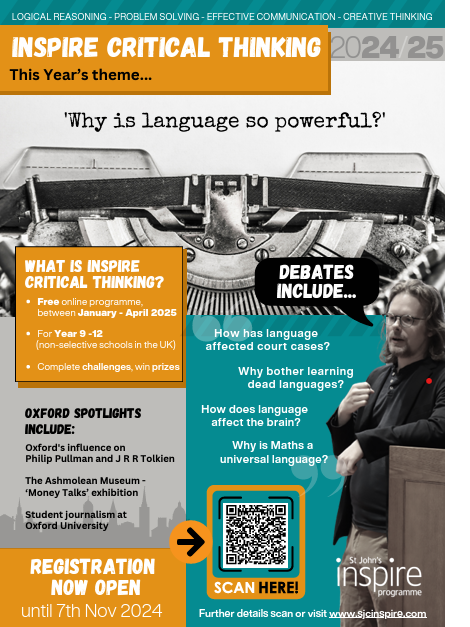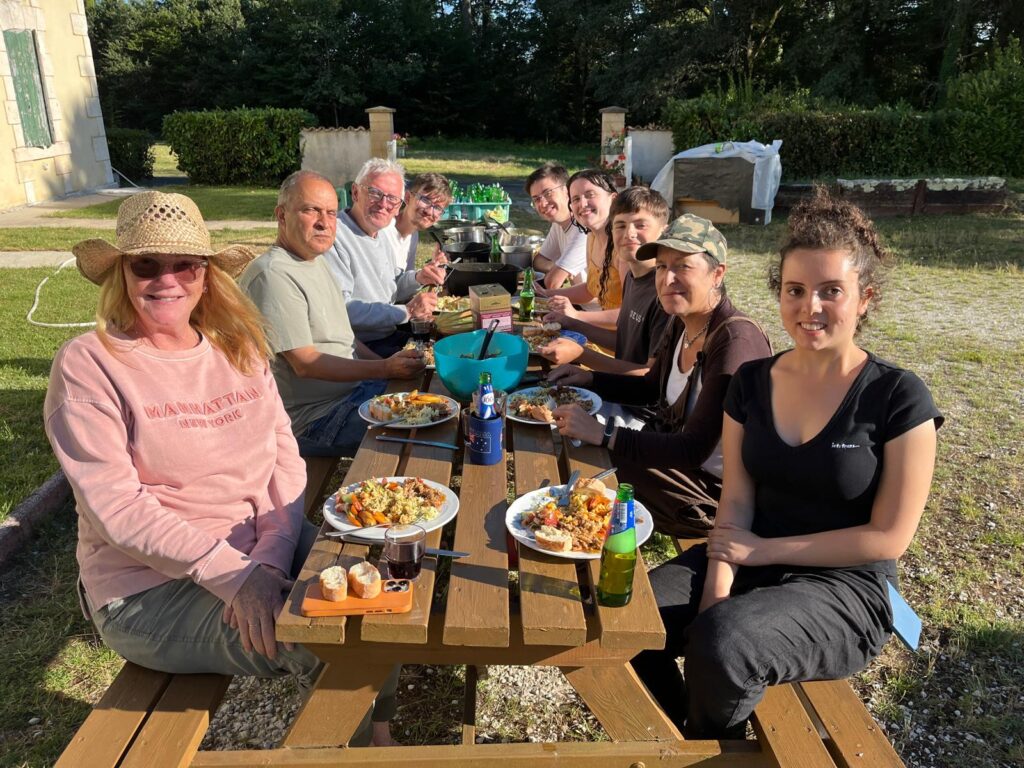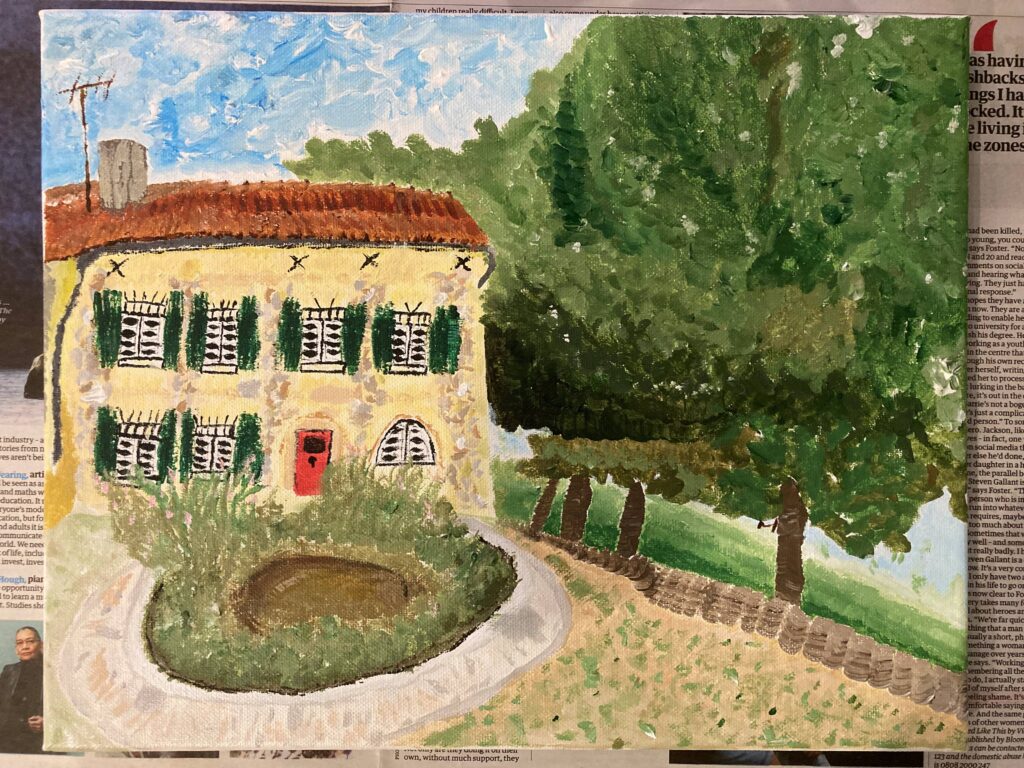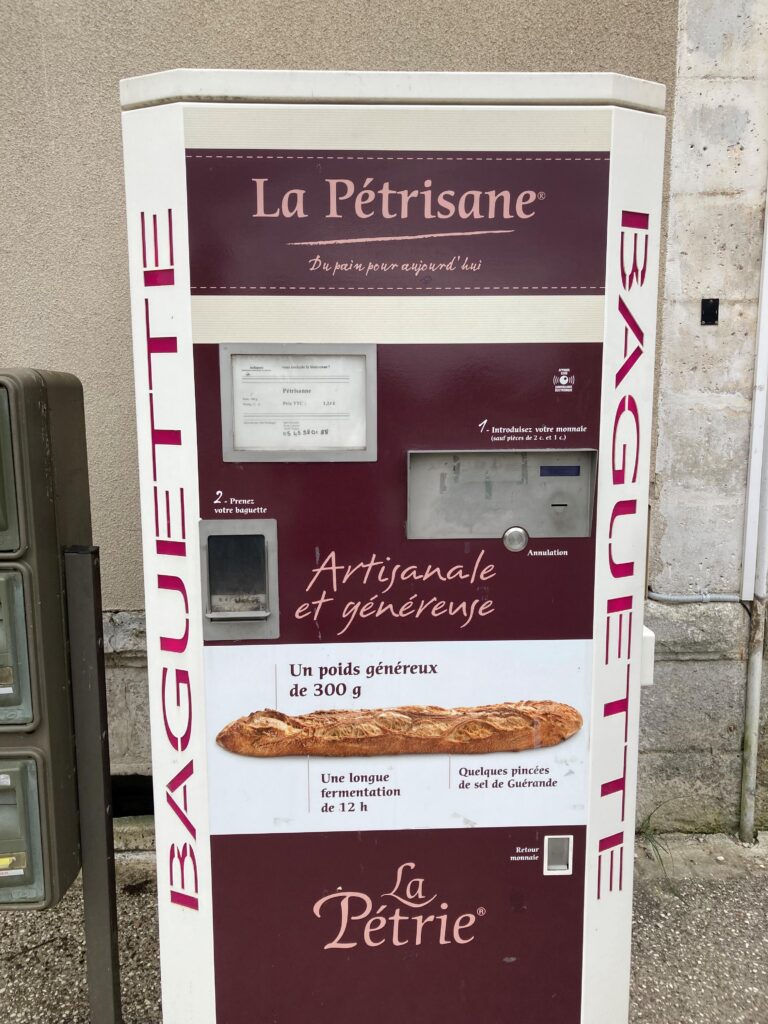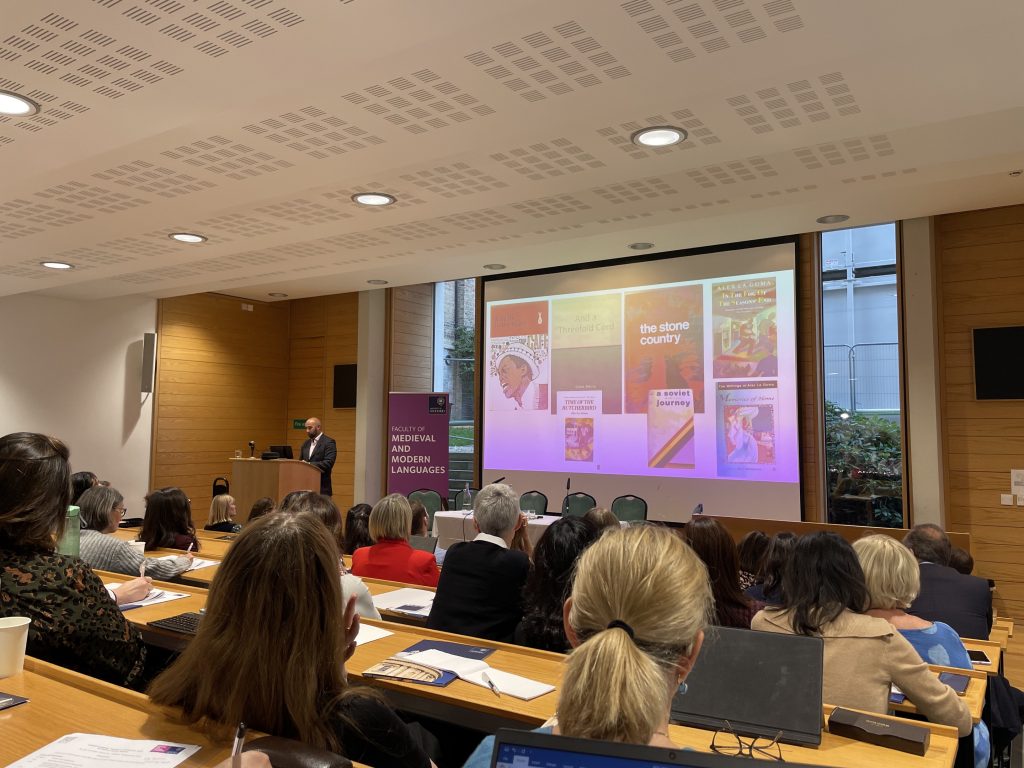Following the publication of the winning and runner up entries, we are excited to present the highly commended entries for the Year 12-13 category of this year’s French Flash Fiction competition!
A huge well done to all our highly commended entrants! Without further ado, allez, on y va!
****
Un poète abîmé
Ne faisant qu’un avec la solitude et la mélancolie, le poète s’abîmait dans le vide de son esprit. Les mots se perdaient dans un brouillard opaque, cherchant en vain la lueur de l’inspiration. Les rues qu’il parcourait étaient des labyrinthes désolés, bordés de souvenirs éteints et de regrets amers. Les étoiles, hier sources d’émerveillement, étaient devenues des témoins froids d’une existence misérable. Sa plume, vacillante, déversant des vers creux et dépourvus de vie. Chaque mot, chaque syllabe semblait peser sur son cœur meurtri, et chaque poème était une triste complainte, renvoyant l’écho de son âme appauvrie.
– Nigelle Niyodusenga, Year 12
Réflexions
Pleuvait-il ce soir? je ne saurais dire. Selon un coup d’oeil d’une horloge dans un taxi, je crois qu’il est presque deux heures du matin. En évitant les flaques, je trébuche avec pertes et fracas sur le sombre R. Frochot. “Etes-vous soûl?”, dit une voix que j’entends à peine, je ne sais pas, probablement. “Où allez-vous?”Je viens de La Bise. Dans quelle direction je dois aller, ça me dépasse. Ce que je sais bien, l’amour de ma vie joue double jeu. Je lutte pour m’empêcher de tomber en panne. J’aimerais hurler. D’ailleurs, une autre “dernière” bouteille pourrait me soigner.
– Massimo Mitchell, Year 12
Le Cambrioleur
Il y a un homme dans ma maison. Il est en bas. Chaque pas en dessous de moi accélère mon rythme cardiaque; chaque pas secoue ma chambre. J’entends le bruit de son sac alors qu’il vole mes choses précieuses. Je doute qu’il sache que je me suis réveillée, donc je quitte lentement ma chambre et marche vers le haut de l’escalier – je veux pouvoir le décrire à la police plus tard. Soudainement, les lumières sur le sapin de Noël m’illuminent et il me regarde dans les yeux.
Un grand sourire surmonte son visage et je ris.
– Rain Kaur, Year 12
Pourquoi je cache?
Quand je suis arrivée, ils m’ont dit « tu seras libérée », mais pourquoi je dois me cacher?
Nous cachons des bonbons et des télécommandes comme une blague entre frères et soeurs.
Nous cachons nos émotions quand nous sommes blessés.
Nous cachons notre colère quand nous sommes frustrés.
Nous nous cachons des secrets.
Nous cachons notre acné avec du maquillage.
Nous nous cachons dans des jeux de cache-cache.
Autant que je sache, nous nous cachons tout le temps. Il faut dire que nous ne sommes jamais nous-mêmes.
Cela est la raison pour laquelle je dois cacher mon hijab à l’école?
– Grace Dobson, Year 12
Chère Céline,
J’espère que tu ne m’as pas oublié, mais maintenant que la France est libérée, je peux t’écrire!
Tu m’as manqué ces dernières années: je me rappelle quand nous jouions ensemble, avant qu’ils ne soient arrivés et que ta mère a dit que nous ne pouvions plus nous voir. Après que je suis partie, on m’a envoyée en Suisse, avec d’autres enfants qui parlaient des langues différentes. Au début ils s’étaient cachés en France jusqu’à ce qu’ils n’y fussent plus sûrs.
J’espère bientôt pouvoir retourner chez moi, mais je comprends que les choses seront changées.
Bisous, Salomé
Juillet, 1944
– Harriet Palfreyman, Year 12
S’éveiller Dans Une Langue
Je me réveille, mais où?
Pas là, où j’étais avant,
Je sens la saleté inconnue
Et je vois le paysage blanc.
Puis je le remarque, enfin,
Ce qui a changé ici.
Mon esprit est vide; je ne sais rien;
Je ne parle qu’une langue d’autrui.
Je me sens comme un enfant,
Mais sans la grande ignorance.
Je me noie dans une vague de mots divagants;
Mon âme est morte, je pense.
Il faut que je recommence
À construire mon monde brisé.
Pour que je puisse parler comme je m’attends-
Une identité, je vais forger.
– Aaron Butters, Year 12
Le Flétrissement
Lentement, je m’étiole.
J’erre à travers ton esprit, te bénissant à chaque minute qui passe. Bientôt, lorsque les ténèbres de la mort s’abattent, je serai métamorphosée, méconnaissable à toi. Puis, tu te rendras compte que mes mœurs, qui t’ont étouffé, t’ont donné du sens.
Tu peux te battre, mais, en vain. Tu ne gagneras aucune guerre, car vous êtes tous les mêmes: la même chair tendre et le même sang chaud.
Ce regret lourd t’alourdira jusqu’à la fin; les défunts sont éternellement jaloux de cette vitalité gaspillée.
Tu dois me saisir, puisque je suis éphémère, la vie éphémère qui s’étiole.
– Eleanor McQuinn, Year 12
Loin de ma maison, je suis bloquée, debout. Une main tenu haut au-dessus ma tête, mon bras secoue avec la torche émeraude qui brûle toujours, immobile. Les touristes recueillent à mes pieds, regardant le ciel et moi, qui suis debout dedans. Maintenant, je suis verte avec le temps et la rouille. Autrefois, j’étais brune brillante, mon cuivre luisant. Je suis debout, grande et muette devant les foules. Mon autre bras saisit une tablette près de moi. Ici, je suis un etranger. Le ciel est loin, mais chaque jour je cherche sa liberté. Loin de ma maison, je suis bloquée, debout.
– Caitlin Graeff, Year 12
La Rencontre de Tu et Vous
Tu et Vous s’évitent. Il faut qu’ils se rencontrent une fois pour toutes.
Blagueur de nature, Tu est toujours facile à vivre. Vous, par contre, est un personnage très sérieux, souvent vantard.
Lorsque les deux mots se rencontrent, ils ne s’entendent pas bien. Tu s’ennuie; Vous se fâche. Il semble que les mots n’aient rien en commun, mais bientôt ils se rendent compte qu’ils sont tous les deux des mots incompris. Il faut qu’ils s’aident.
Tu et Vous se regardent silencieusement et puis, d’une seule voix:
«On se tutoie?»
– Sally Codling, Year 12
Les dernières paroles d’une madeleine
Je fixe sa luette du regard alors qu’il me rapproche à sa bouche bée; qu’est-ce que mon plissage sévère deviendra après qu’il se dissout dans ces postillons menaçants, pourquoi mon corps sucré doit-il périr dans l’intérêt de ce rêveur fou? Regardez ces miettes sur sa moustache comme des fleurs qui ornent les piques d’aubépine alors qu’il se perd dans ses souvenirs – pourquoi mon parfum de vanille doit-il s’estomper alors que ses souvenirs le ramènent à Combray, est-il juste que je meure pour que son passé lointain, endormi pour les autres, puisse prendre vie en lui?
– Jovian Yann, Year 12
****
Félicitations tout le monde!


